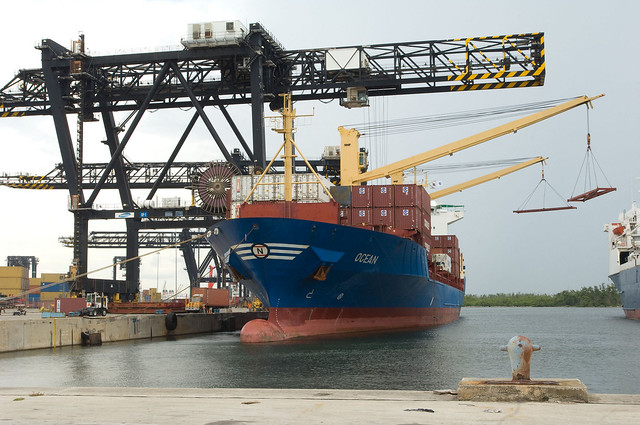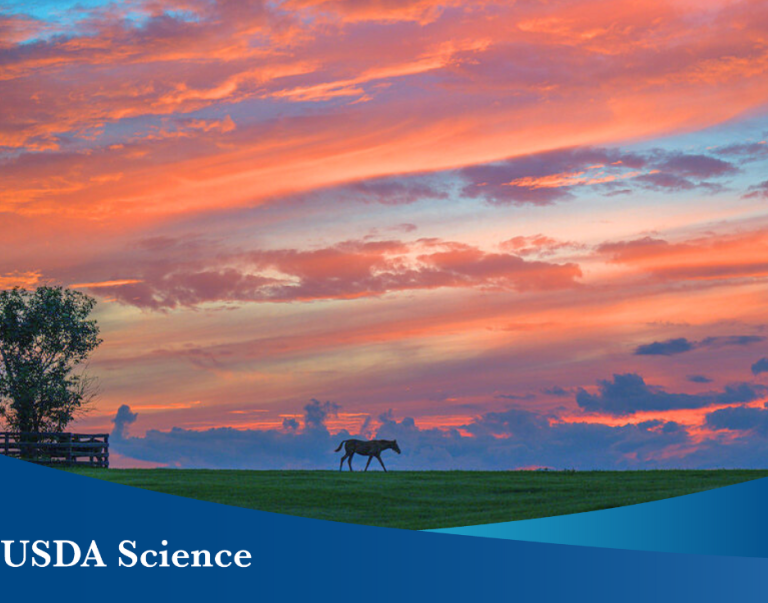
It’s World Trade Month and a good time to consider a few of the ways that USDA helps advance trade. USDA’s Animal and Plant Health Inspection Service (APHIS) plays a vital role in the free flow of agricultural trade by keeping U.S. agriculture free from pests and diseases and certifying that millions of U.S. agricultural and food products shipped to markets abroad meet the importing countries' entry requirements. Likewise, APHIS works to ensure all imported agricultural products shipped to the United States meet our requirements to prevent pests and diseases from harming U.S. agriculture. Last year the United States exported over $138 billion of agricultural products and imported over $120 billion.
Our animal agriculture industries rely on exports of a wide range of products to maintain their livelihoods. These products range from the obvious such as beef, pork, and poultry meat, to the not so obvious like pet food, tissues used in pharmaceutical manufacturing, and tallow for biodiesel. We work closely with our “Team USDA” partners (Foreign Agricultural Service, Food Safety and Inspection Service, and Agricultural Marketing Service) and our partners in other agencies, such as the Office of the U.S. Trade Representative and the U.S. Food and Drug Administration, to coordinate a strategic approach to resolve trade issues and open markets.
Many countries, including the United States, restrict imports of products such as meat due to outbreaks of animal diseases. For example, during the 2014-2015 highly pathogenic avian influenza (HPAI) outbreak, over 50 countries placed restrictions on U.S. poultry products. APHIS and our partners worked hard to minimize these restrictions through regionalization, a process where countries recognize the disease-free status of regions or zones within a country, rather than ban products from the entire country. Countless hours were spent in discussions with other countries, explaining our multi-level control measures (including movement controls, depopulation, and virus elimination), negotiating protocols, providing risk assessments, sharing comprehensive disease surveillance plans and hosting audits and site visits. As a result of efforts to limit export restrictions and minimize trade impacts, 38 trading partners agreed to regionalize and allow trade from U.S. areas and states not affected by HPAI, allowing trade valued at $4.4 billion to resume.
Since then, APHIS has continued efforts to optimize our trade agreements and minimize restrictions that could result from a future avian influenza outbreak. Most recently, USDA reached an important regionalization agreement for HPAI at the state level with South Korea’s Ministry of Agriculture, Food and Rural Affairs, marking a huge success for the U.S. poultry industry.
Regionalization doesn’t just benefit the United States. Other countries benefit from the process as well. Just as we request countries to consider our situation related to animal disease outbreaks, we do the same when they approach us about imports to the United States. When countries submit a formal request, APHIS begins a rigorous evaluation process. We use a science and risk-based approach to evaluate the animal health status of a foreign region. This approach helps ensure that U.S. consumers continue to enjoy a diverse and bountiful choice of food from around the world.
Restrictions on exports can cause catastrophic economic impacts. In 2017, beef exports from the U.S. were more than 12% of total beef production, and pork exports were more than 26% of total pork production. Imagine the issues that would arise if a quarter of pork production in the United States suddenly had nowhere to go. And consider the dollar values – in 2017, poultry and egg exports were valued at more than $4.5 billion dollars. USDA works as hard as we can to help maintain these exports to support our producers and associated businesses. Trade is highlighted in May, but APHIS and our partners work all year long to advance trade opportunities and remove trade barriers while vigilantly protecting U.S. agriculture. That’s one way we do our part to do right and feed everyone.


